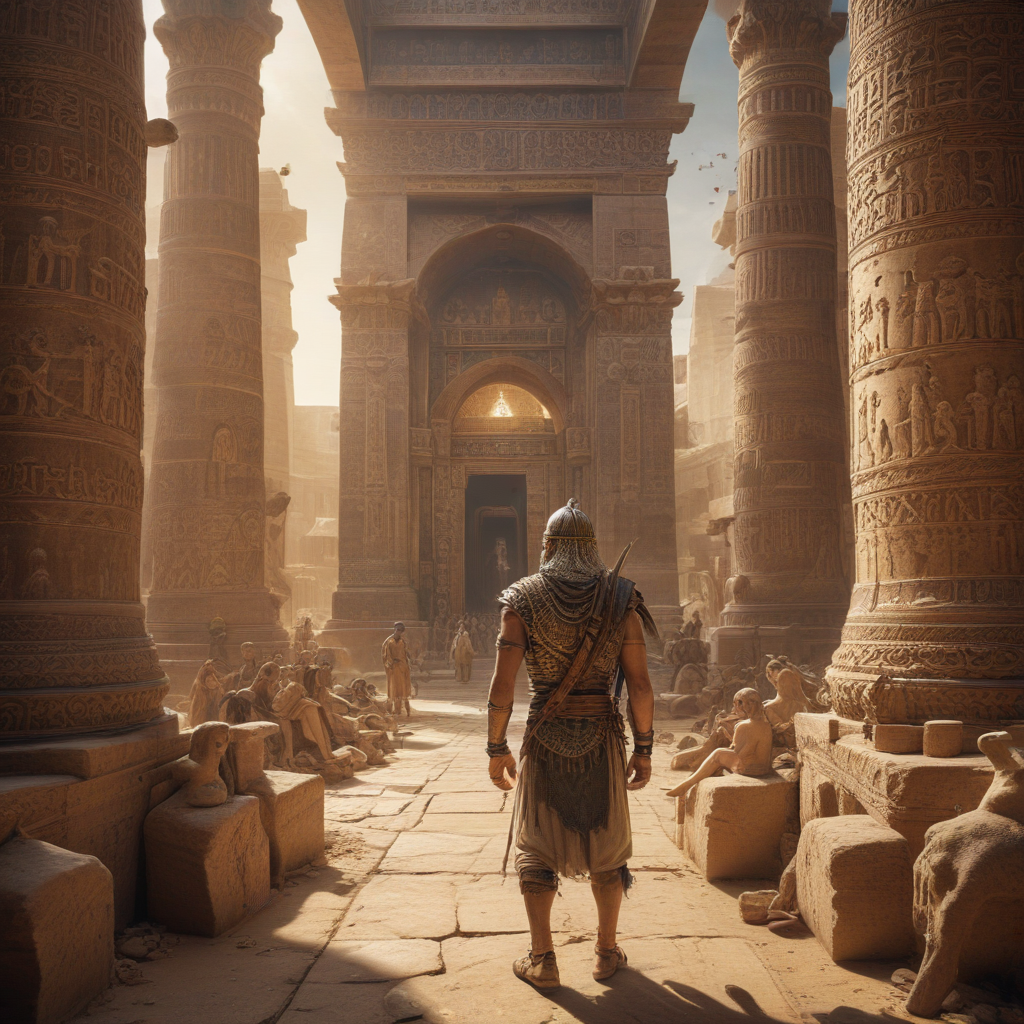From Ashes to Life: The Transformative Power of Mythic Narratives
1. Introduction: Understanding Mythic Narratives
Mythic narratives are stories that embody the fundamental beliefs, values, and lessons of a culture, often featuring gods, heroes, and supernatural events. These narratives serve to explain the mysteries of life, death, and the human experience, providing a framework within which people can interpret their existence. Across various cultures, mythic narratives have held significant importance, often serving as moral guides and sources of inspiration.
The theme of transformation is particularly prevalent in mythic narratives, where characters undergo profound changes that reflect deeper truths about human nature and society. This article explores the concept of transformative myths, examining their historical contexts, key elements, cultural variations, and their relevance in modern storytelling.
2. The Historical Context of Myths
The practice of myth-making can be traced back to ancient civilizations, where oral traditions played a crucial role in preserving these narratives. Myths were often passed down through generations, evolving over time while remaining rooted in the cultural consciousness of the people.
- Ancient Egypt: Myths such as the story of Osiris and Isis illustrate themes of death and rebirth.
- Mesopotamia: The Epic of Gilgamesh is a foundational text that examines the quest for immortality.
- Greco-Roman Tradition: Myths like the Twelve Labors of Hercules emphasize personal growth through trials.
These examples highlight how transformative experiences are central to many ancient myths, serving as metaphors for the human condition.
3. Key Elements of Transformative Myths
Transformative myths often share common themes that resonate with audiences across time and place. These include:
- Death and Rebirth: Many myths explore the cycle of life, death, and renewal.
- The Hero’s Journey: This archetypal narrative describes the hero’s adventures, challenges, and ultimate transformation.
- Conflict and Resolution: Central to many myths, conflict drives characters to grow and evolve.
Archetypes, as defined by psychologist Carl Jung, play a significant role in these narratives, representing universal patterns found in human experience. They guide individuals through their own transformative journeys, often providing a mirror through which to reflect on personal struggles and growth.
4. Cultural Variations: Myths Around the World
Transformative myths vary widely across cultures, reflecting the unique values and beliefs of each society. Here are a few notable examples:
- Greek Mythology: The story of Persephone’s descent into the underworld represents seasonal cycles and the duality of life and death.
- Norse Mythology: The myth of Ragnarok illustrates a cyclical destruction and rebirth of the world.
- Indigenous Myths: Many indigenous cultures have myths that emphasize harmony with nature and personal transformation through connection to the earth.
Cultural context significantly shapes these narratives, influencing their meanings and the lessons they impart. For instance, the emphasis on community in Indigenous myths contrasts with the individualistic narratives often found in Western mythologies.
5. Mythic Narratives in Modern Storytelling
Ancient myths continue to influence contemporary literature and media, shaping the narratives we consume today. Many modern films and novels draw from mythic structures, incorporating themes of transformation to resonate with audiences.
- Film: Movies like “The Lion King” and “Harry Potter” utilize the hero’s journey to depict characters overcoming adversity.
- Literature: Novels such as “The Alchemist” by Paulo Coelho explore personal transformation inspired by mythic elements.
These stories often reflect modern identity and values, allowing individuals to find meaning in their personal journeys through the lens of myth.
6. Psychological Perspectives on Mythic Transformation
From a psychological perspective, myths can serve as powerful tools for personal transformation. Carl Jung’s concept of archetypes and the collective unconscious suggests that myths resonate with universal human experiences.
Moreover, engaging with mythic narratives can have therapeutic benefits, offering individuals a framework for understanding their struggles and aspirations. Case studies show that people who connect with myths often report a sense of purpose and clarity in their lives.
7. Myths as Tools for Societal Change
Myths can also play a vital role in promoting social cohesion and identity. They often address societal issues, inspiring movements for change. For example:
- Environmental Myths: Stories that emphasize the importance of nature can motivate action against climate change.
- Myths of Equality: Narratives that advocate for social justice can unite people in the fight against inequality.
These examples highlight how myths can inspire collective action and foster a sense of shared purpose.
8. The Process of Personal Transformation Through Myths
Individuals seeking personal transformation can engage with mythic narratives through various practices:
- Self-Reflection: Reflecting on personal experiences in relation to myths can offer insights into one’s life journey.
- Creative Expression: Writing or creating art inspired by myths can facilitate personal growth.
- Storytelling: Sharing personal stories that resonate with mythic themes can foster connections with others.
Testimonials from individuals who have engaged with myths often reveal profound transformations, as they find new meanings and directions in their lives.
9. Challenges and Critiques of Mythic Narratives
Despite their power, mythic narratives can present challenges. Misinterpretation or oversimplification of myths can lead to misunderstandings. Furthermore, cultural appropriation in modern adaptations raises ethical concerns, as it can dilute the original meanings and significance of these stories.
Striking a balance between reverence for traditional narratives and the need for reinterpretation is essential in honoring the richness of mythic storytelling.
10. Conclusion: The Enduring Legacy of Mythic Narratives
Mythic narratives hold an enduring legacy that transcends time and culture. Their transformative power lies in their ability to inspire, heal, and unite individuals and communities. By engaging with these narratives, we not only connect with the past but also open pathways for personal and societal growth in the present and future.




